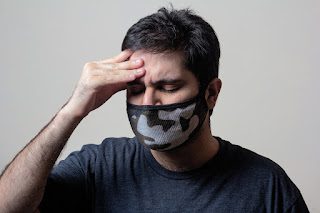Migraine headaches are a common and debilitating condition affecting around one in seven adults, yet they remain poorly understood. It happens when the brain is activated by sensory signals, causing a release of chemicals that cause blood vessels to dilate. This can trigger pain in some people.
See a Medical Professional for Assessment and Treatment
Severe migraine can be caused by a variety of different factors, such as an underlying medical condition or the use of certain medications. It is important that those suffering from chronic migraines who are unsure of the cause see their Brisbane Osteopath doctors for assessment. Treating one particular symptom without identifying its cause may lead to ineffective and potentially harmful treatments. If headaches are severe and occur frequently, it is important to seek medical advice to determine the most appropriate treatment.
Over-the-Counter Medication for Tension Headache Relief
One common approach to relieving tension headaches is an over-the-counter medication. Tylenol, ibuprofen, and aspirin are all effective at reducing pain. It’s important to read the labels of these medications, however, as they can cause side effects such as stomach bleeding, ulcers, and kidney problems if taken in excess or mixed with other painkillers.
If over-the-counter medications prove ineffective, your physician may prescribe neuropathic medication for your headache relief. There are several types of prescription migraine headaches painkillers, including antidepressants and triptans.
Prescription Painkillers for Frequent Tension Headaches
Neuropathic painkillers can be effective at relieving tension headaches but may have side effects such as nausea and drowsiness. They should not be taken with other drugs or alcohol, due to the risk of serious side effects. Your physician will also need to ensure that they are not causing any liver problems or kidney damage by prescribing these drugs.
The potential side effects of neuropathic medication must be carefully weighed against the benefits because the relief they provide can last for up to 6 months. You should also consider taking non-drug measures, such as acupuncture or physiotherapy.
Alternative Therapies for Migraine Headaches
There are several alternative therapies that may prove useful in managing migraines. These include massage therapy, neuro-feedback, and acupuncture. If you are considering these treatments, it is important to work with a trained professional who uses proven techniques. Massage therapy is used for pain relief by stimulating the muscles of the neck and scalp which are often tense during migraines. Physicians recommend massages therapy may also help to ease tension.
Prescription Drugs for Quick Migraine Relief
If you continue to suffer from migraines, your physician may prescribe triptans. These are the most commonly prescribed medications for migraine headaches. They work by constricting blood vessels in the brain and can be taken as injections or swallowed as tablets or nose sprays. These drugs need to be used with caution, however, because they can cause rebound headaches if taken too often.
Some people find that complementary therapies, such as acupuncture, work well in combination with prescription drugs to manage migraines. Acupuncture is a traditional Chinese medicine that involves the insertion of very thin needles into the skin at specific points on the body.
Acute Treatment for Cluster Headaches
There are also medications that are specifically designed to treat cluster headaches. These drugs, called ergots, work by narrowing the blood vessels in the brain. They are taken as tablets and should be used only for a short period of time because they can cause serious side effects.
There are a variety of approaches you can take to try and relieve migraines. Your physician will be able to help you decide which treatment option is best suited to your situation. While some people have found relief from alternative therapies, prescription painkillers are often the most effective way of managing this condition. Other treatments for cluster headaches include inhaled oxygen, injected or nasal triptans, and corticosteroids.
How to Treat Rebound Headaches
If you are taking prescription medication for migraines, it is important to be aware of the risk of rebound headaches. This occurs when the medication is taken too often and the body becomes dependent on it. Rebound headaches can be very debilitating and can last for several days. To avoid this, it is important to take medications only as prescribed by your physician and to discuss any concerns you have with them. Sometimes, it would be much better for you to stop taking certain medications and speak to your doctor about them.
If you continue to suffer from migraines, your physician may prescribe triptans. These are the most commonly prescribed medications for migraine headaches. They work by constricting blood vessels in the brain and can be taken as injections or swallowed as tablets or nose sprays. These drugs need to be used with caution, however, because they can cause rebound headaches if taken too often.



